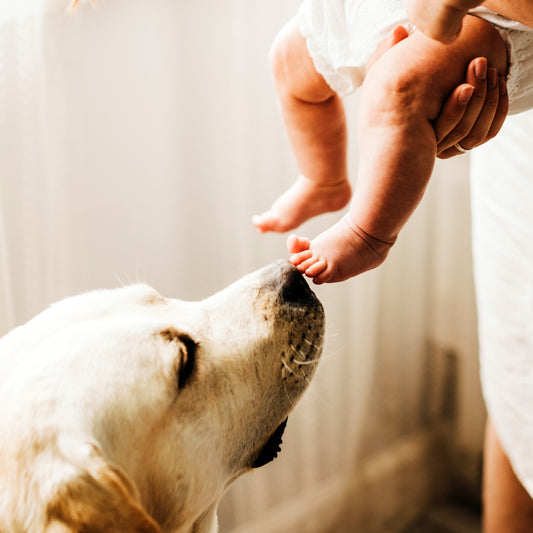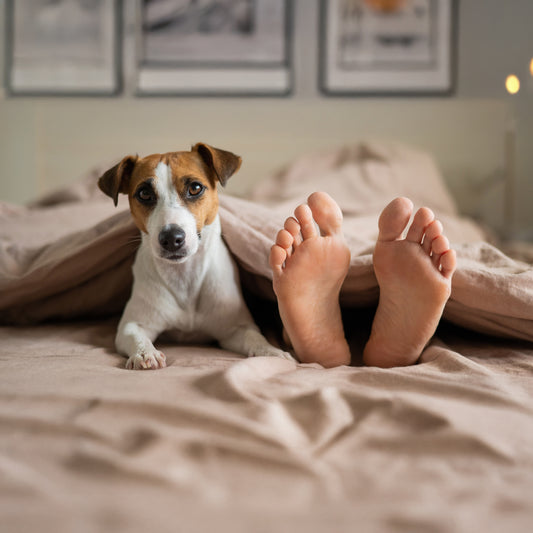Feeding your dog human food can be tempting, especially when they give you those pleading puppy-dog eyes during dinner. However, not all human foods are safe for dogs. Here's a breakdown of what’s okay, what’s risky, and how to make informed choices for your furry friend.
Safe Human Foods for Dogs
Certain human foods can be healthy and beneficial for your dog when offered in moderation. Here are some safe options:
- Lean Meats (Cooked): Chicken, turkey, and beef (without seasoning or sauces).
- Fruits: Apples (seedless), blueberries, watermelon (seedless), bananas.
- Vegetables: Carrots, green beans, broccoli (steamed).
- Plain Cooked Rice or Pasta: Great for sensitive stomachs.
- Peanut Butter (Unsweetened): An excellent treat, but ensure it’s free of xylitol (a toxic sugar substitute).
Why It’s Good: Many of these foods are rich in vitamins, fiber, and lean protein, which can complement your dog’s diet.
Research Suggests: Adding safe, whole foods to a dog’s diet can improve coat quality, energy levels, and digestion.
Foods to Avoid
Some human foods are toxic to dogs and should be avoided entirely:
- Chocolate: Contains theobromine, which is poisonous to dogs.
- Grapes and Raisins: Can cause kidney failure, even in small amounts.
- Onions and Garlic: Damage red blood cells, leading to anemia.
- Avocado: Contains persin, which is harmful in large quantities.
- Alcohol and Caffeine: Both are highly toxic to dogs.
- Xylitol: Found in sugar-free gum, candy, and some peanut butter, it can cause liver failure and hypoglycemia.
Quick Fact: Grapes and raisins are among the most common culprits in dog poisoning cases.
How to Introduce Human Food Safely
If you want to share human food with your dog, follow these tips:
- Check Portion Sizes: Human food should not exceed 10% of your dog’s daily caloric intake to avoid weight gain.
- Introduce Gradually: Start with small amounts to monitor for any adverse reactions.
- Avoid Seasonings and Additives: Salt, sugar, spices, and butter can harm your dog’s health.
Pro Tip: Always remove bones from meat to prevent choking or digestive blockages.
Homemade vs. Commercial Diets
If you're considering a homemade diet for your dog, consult with a veterinarian or canine nutritionist to ensure their meals meet nutritional requirements.
Statistics: Dogs fed unbalanced homemade diets can suffer from deficiencies in essential nutrients like calcium, vitamin D, and taurine.
Signs of Food-Related Issues
Be alert for these symptoms if your dog eats something new:
- Vomiting or diarrhea.
- Lethargy or restlessness.
- Swelling or hives (signs of an allergic reaction).
- Loss of appetite.
If you notice any of these signs, contact your veterinarian immediately.
While some human foods are safe and nutritious for dogs, others can be harmful or even fatal. Moderation and caution are key when sharing meals with your furry companion. When in doubt, consult your vet before introducing anything new to their diet.




